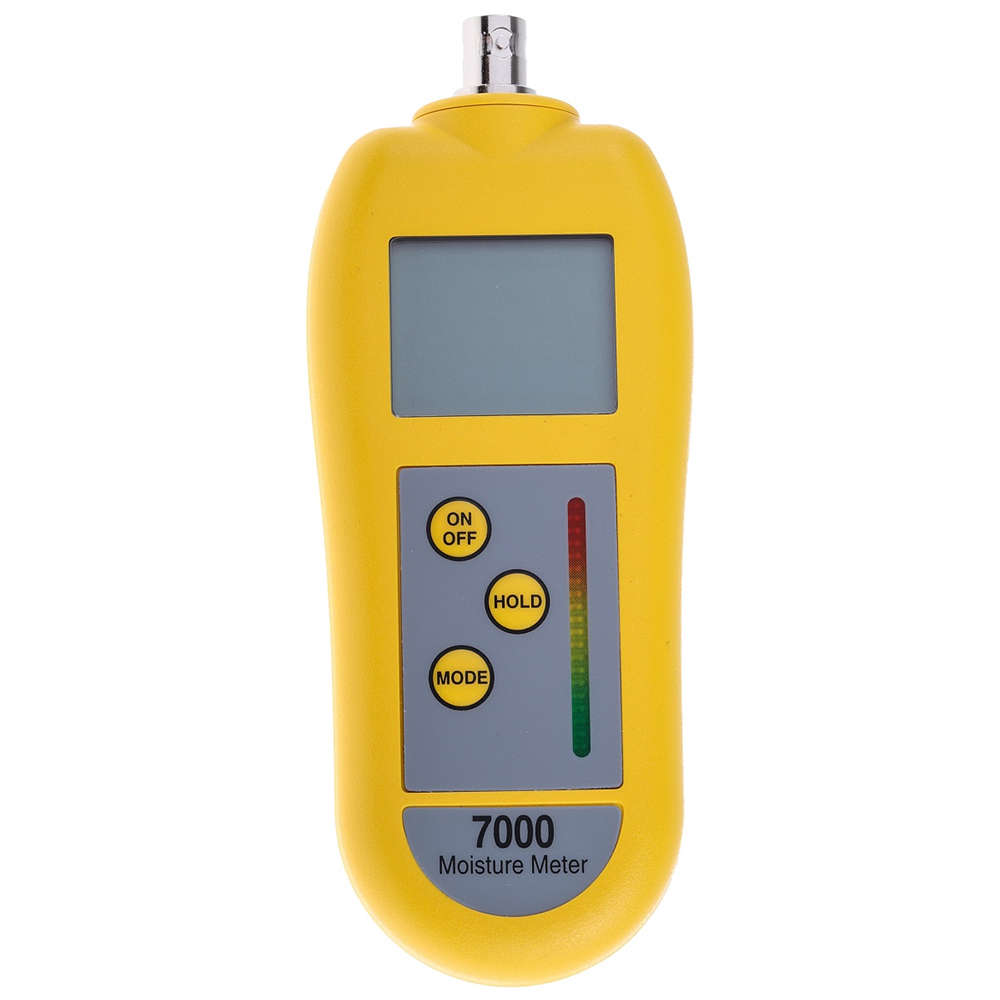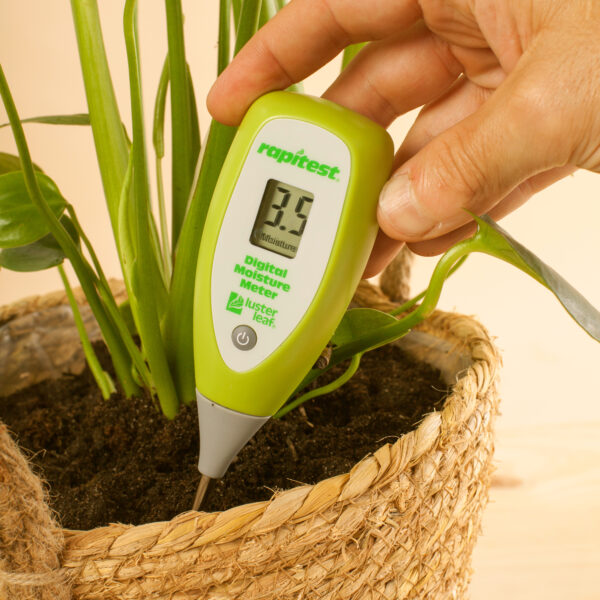The Ultimate Overview to Moisture Meters: A Comprehensive Introduction and How They Can Conserve You Cash
In the realm of building upkeep, building and construction, and various industries, the importance of precisely determining dampness levels can not be overemphasized. Wetness meters offer as important devices in detecting and checking moisture material in materials, aiding in protecting against pricey problems and making certain the top quality of items. Understanding the subtleties of different sorts of moisture meters, their applications, and the possible cost-saving benefits they use can be a game-changer for experts and organizations alike. Uncovering how these gadgets can not only enhance processes yet likewise add to economic savings is a trip worth beginning on.
Sorts Of Moisture Meters
Various kinds of wetness meters are offered for different applications in various sectors. One common type is the pin-type moisture meter, which gauges the electric resistance in between two pins put right into a product. This type is ideal for timber, drywall, and other structure materials. Pinless moisture meters, on the other hand, use electromagnetic sensor plates to scan a bigger location without causing damages to the product's surface area. These meters are ideal for promptly assessing wetness degrees in big locations such as wall surfaces and floors.
Infrared wetness meters measure the thermal residential or commercial properties of a product to establish its moisture web content non-invasively, making them valuable for applications where pin or pinless meters might not be ideal. Recognizing the various types of moisture meters offered can aid sectors select the most proper device for their particular dampness measurement demands.

Advantages of Using Moisture Meters

Furthermore, making use of moisture meters can cause raised power effectiveness. By determining areas with high wetness degrees, such as leaks or poor insulation, modifications can be made to boost energy conservation and reduce energy expenses. In agricultural settings, dampness meters play a vital function in enhancing plant yields by allowing farmers to keep an eye on soil moisture degrees and make educated watering decisions. Overall, the benefits of using wetness meters span throughout numerous industries, giving cost-efficient options and promoting far better quality control techniques.
Exactly How to Choose the Right Moisture Meter
Picking the suitable moisture meter involves thinking about crucial aspects such as product compatibility, measurement array, and calibration precision. When selecting a wetness meter, it's important to guarantee that the meter is appropriate for the particular material you will certainly be testing. Various materials have varying electrical residential properties that can affect wetness readings, so selecting a meter developed for your material is important for accurate outcomes. Additionally, consider the measurement variety of the dampness meter. Make certain that the meter can discover wetness degrees within the array required for your applications. Calibration accuracy is one more crucial aspect to remember (Moisture Meter). Go with a moisture meter with reliable calibration to guarantee regular and specific readings. Some meters may require routine calibration changes, so comprehending the calibration procedure is necessary. By thoroughly evaluating these aspects, you can choose a dampness meter that satisfies your needs and gives precise moisture dimensions for your jobs.
Proper Strategies for Moisture Meter Use
To guarantee accurate moisture readings and take full advantage of the effectiveness of a dampness meter, utilizing correct methods is important. When making use of a pin-type dampness meter, insert the pins or probes into the product being checked until they make full get in touch with. Ensure the pins are vertical to the surface to get the most exact analysis. For pinless wetness meters, hold the tool flat versus the material and relocate gradually to cover the entire location for an ordinary reading. It's crucial to adjust the dampness meter according to the product being examined to improve accuracy. Take numerous readings across the surface and typical them out for an extra reputable outcome. Furthermore, make certain that the product being examined is accustomed to the environment to stop skewed readings. Routine maintenance of the moisture meter, such as cleansing the pins or sensor, is additionally vital to make sure exact and consistent analyses. By following these proper methods, users can rely upon their wetness meter to provide credible moisture degrees, helping in stopping costly damage or making sure quality in numerous applications.

Price Savings With Moisture Meter Applications
Just how can the strategic utilization of dampness meters lead to considerable price savings across different markets? Dampness meters play an important duty in price savings by preventing prospective damage and ensuring quality assurance in various fields. In the agriculture market, dampness meters help in determining the ideal time for gathering crops, preventing over-drying or excess dampness that can affect the end product's quality. This exact useful link monitoring assists farmers avoid unneeded losses and optimize their return.

Additionally, in the food processing market, wetness meters are vital for keeping an eye on item high quality and making sure conformity with security policies. By precisely measuring moisture web content in foodstuff, suppliers can protect against perishing, preserve freshness, and decrease waste, resulting in substantial price financial savings. Generally, the tactical application of moisture meters is an important financial investment that can bring about considerable cost reductions and boosted effectiveness across various sectors.
Final Thought
To conclude, moisture meters are beneficial devices for gauging and finding moisture degrees in different materials. investigate this site By making use of the best moisture meter and adhering to proper strategies, individuals can effectively protect against expensive problems triggered by excess moisture. Spending in a quality dampness meter can result in substantial cost financial savings in the future by recognizing prospective concerns early and enabling timely remediation. Inevitably, moisture meters are necessary instruments for preserving the integrity and durability of products and structures.
Moisture meters serve as vital tools in discovering and monitoring moisture material in materials, helping in preventing costly damages and ensuring the high quality of products. Infrared wetness meters measure the thermal buildings of a material to identify its dampness material non-invasively, making them beneficial for applications where pin or pinless meters might not be ideal.Wetness meters provide indispensable advantages in precisely checking and assessing moisture levels in diverse products and atmospheres. In agricultural setups, wetness meters play a vital role in maximizing plant yields by enabling farmers to monitor dirt moisture levels and make educated irrigation choices.In verdict, moisture meters are important tools for determining and detecting dampness levels in various materials.
Comments on “Why Every Homeowner Needs a Moisture Meter: Key Advantages and Functions”